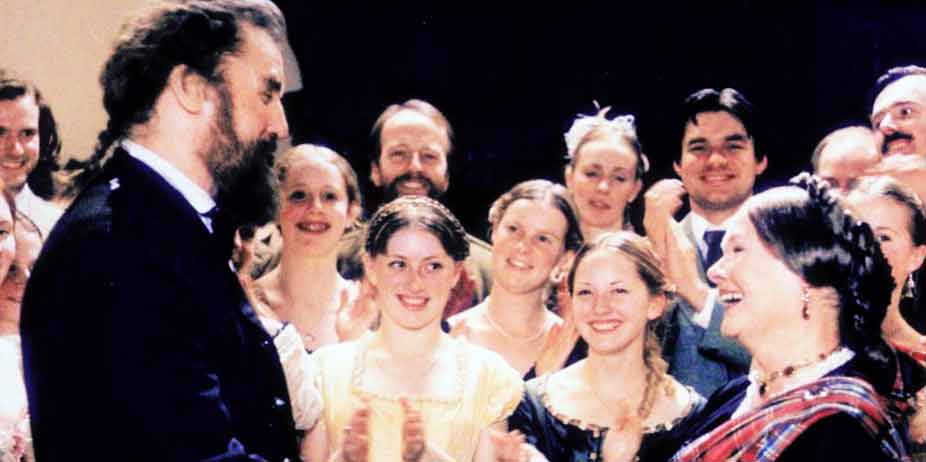
Mrs. Brown (1997)
Being a scholar of the Victorian age, I'm well familiar with the story of Queen Victoria's life. She came to the throne at the age of eighteen and by trial and error, with Prince Albert at her side, became one of the country's most celebrated monarchs. Her empire was a time of honor and morality (as recently seen in The Four Feathers) and a fairly accurate representation can be seen in the BBC miniseries Victoria & Albert. Before the miniseries, there was Mrs. Brown, a slow-moving but critically acclaimed film about the unlikely friendship between an aging Queen Victoria and the Highlands groom, John Brown. Their relationship scandalized the household and shocked the nation... but changed Victoria's life forever.
After the death of Albert, Victoria (Judi Dench) fell into a period of deep mourning, excessive in its intentions, and withdrew completely from public life to her country estate. Refusing council and allowing the reigns of Parliament to slip through her fingers, her despondency placed the monarchy in peril, for public opinion was waning. Desperate for some improvement, her private secretary requests that one of Albert's former grooms be established in the household in the hopes that it will appeal to her romantic nature and interest her once again in riding. Brown is brought to the palace, much to the queen's disinterest... but unlike the other servants, has no intention of being put upon. He speaks out of turn, says it as he feels it, and refuses to listen to orders. Instead of waiting in his room, he saddles up her white mare faithfully day after day and stands in the courtyard, staring up at the house. This wears upon Victoria to the point that she determines to put him in his place, and she concedes to go riding. Brown finds her a bossy, self-involved woman with little interest in repairing the monarchy.
Throughout England there are concerns that the monarchy will be abolished entirely in favor of a democracy. Due to his loyalty for Albert and his growing love for the resident queen, Brown intends to prevent the inevitable. His friendship with the Queen becomes so intimate that she soon grows to rely on him completely, and among inner circles she's referred to as 'Her Majesty Mrs. Brown.' But there are those who would seek to destroy their intimacy and bring the royal family to ruin. Mrs. Brown is the kind of slow-moving piece that only a few will absolutely adore. It's a bittersweet friendship and romance, yet very much sticks to the original tune of Victorian life: pomp and society. In this, Billy Connolly's performance as John Brown is a bold, untraditional statement of a Highlander determined not to be bound by common standards of society. It's a lot of fun to watch him challenge Victoria in many ways. Not only her... but the rest of the household as well. It's due only to Brown's influence that Victoria didn't go out of her mind from grief.
Both performances are very rewarding. Overall the film is lovely to look at, but several things derails it from being mainstream entertainment. One is the length and slow-moving storyline, and the other is the fact that the romance takes place between two leads well up in years. Older viewers will find it touching; most teenagers will find it quiet and dispassionate. The content is kept fairly light except for one shocking scene of skinny dipping that should have earned a PG13 rating. Violence is fairly limited, although a man is attacked and beat mercilessly, and language is mild, with a few profanities, abuses of deity, and some crude comments. It's interesting to see the change in the monarchy after Albert died. It makes me wonder whether he was the true strength of morality and justice in England...
